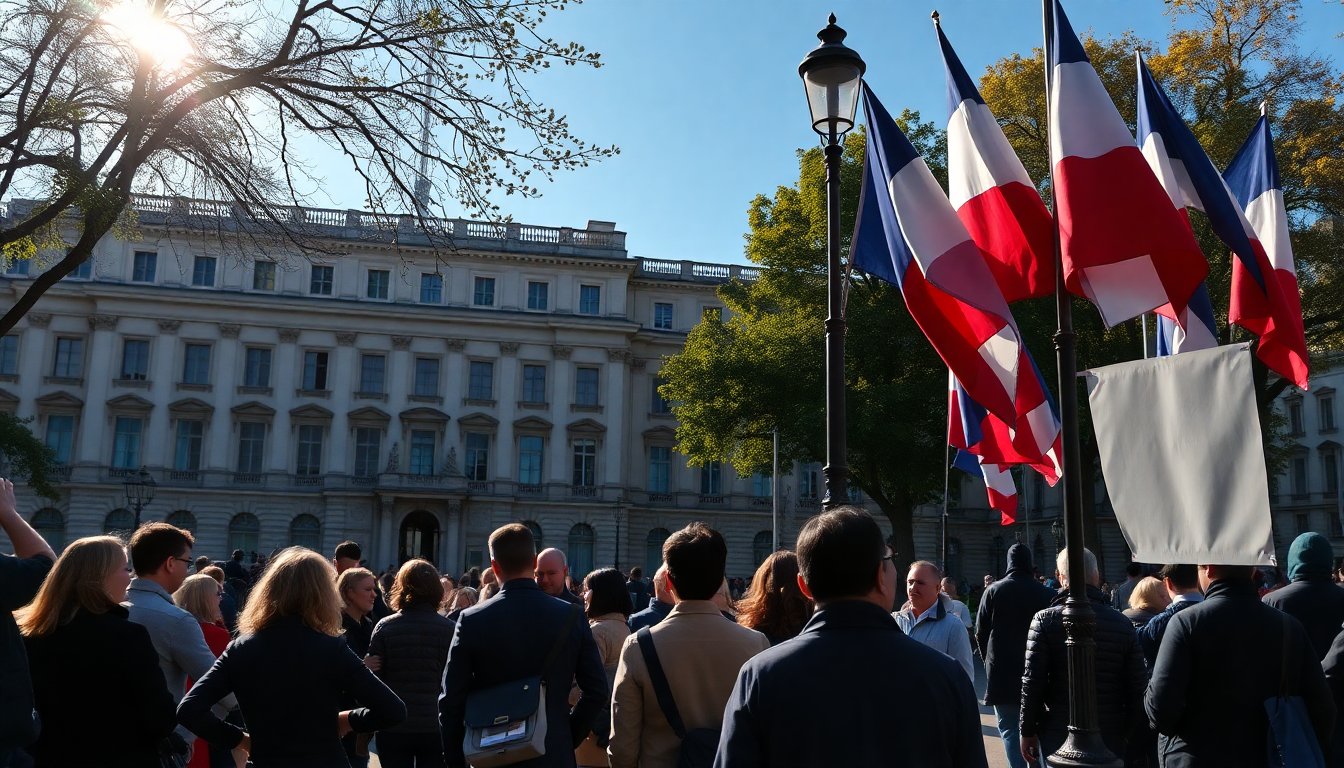Table of Contents
In the heart of Paris, President Emmanuel Macron is set to announce his next strategic move to tackle the growing political and economic challenges facing France. As anticipation builds, questions arise about the effectiveness of his leadership amid increasing dissent from former loyal supporters.
Once viewed as a promising figure for centrist politics, Macron’s support is waning, particularly among three of his former prime ministers. This decline underscores the urgency of the situation as the president navigates the turbulent waters of French governance.
Shifting political landscape
The current crisis has prompted Macron to explore various options, including the possibility of calling a snap general election or appointing a new prime minister—his sixth since taking office in 2022. Speculation suggests he may opt for a more left-leaning candidate this time, potentially from the Socialist Party, to address the budgetary challenges threatening the stability of the European Union’s second-largest economy.
Recent developments
In a dramatic turn of events, Prime Minister Sébastien Lecornu resigned after only 27 days in office, leaving Macron to find a solution swiftly. The president had tasked Lecornu with devising a way out of the current predicament while facing growing frustration from within his party. Gabriel Attal, leader of Macron’s centrist Renaissance party, expressed his confusion over the president’s recent decisions during a national television appearance.
Former Prime Minister Édouard Philippe, eyeing a future presidential bid, has suggested that Macron should consider stepping down once a budget is approved. Philippe’s remarks highlight the increasing impatience among Macron’s inner circle, particularly as the president has cycled through three governments in less than a year.
Calls for change
The situation has become more complex with Élisabeth Borne, who previously oversaw significant reforms, now advocating for a suspension of controversial retirement age legislation. Her comments, made in an interview with Le Parisien, reflect a shift in political sentiment, emphasizing the need for leaders to remain attuned to public opinion.
As Macron struggles to regain control, he must consider the implications of calling an election—a risky move that could weaken his centrist Renaissance party while empowering the far-right National Rally. Although he dismissed the idea of early elections in August, there are indications that his resolve may be faltering.
Potential strategies
Political analysts suggest that the president still holds a critical card. Appointing a Socialist prime minister could strategically facilitate government action while shifting responsibility to opposition parties that may find it difficult to navigate the legislative landscape. Olivier Faure, head of the Socialist Party, has expressed readiness to explore new avenues and indicated a willingness to collaborate with Macron’s party under specific conditions.
While the urgency of passing a budget looms, a recent meeting led by Lecornu with key lawmakers yielded no immediate solutions. The focus remained on the dual priorities of budget approval and addressing a governance crisis in New Caledonia. However, skepticism surrounds Lecornu’s ability to navigate these challenges effectively, particularly following his brief tenure.
Future implications
As Macron contemplates his next steps, internal dissent simmers. Bruno Retailleau, leader of the conservative Les Républicains, has firmly rejected the idea of cooperation unless a prime minister from a rival party is appointed. His comments reflect a hardened stance among conservatives, complicating Macron’s options further.
Once viewed as a promising figure for centrist politics, Macron’s support is waning, particularly among three of his former prime ministers. This decline underscores the urgency of the situation as the president navigates the turbulent waters of French governance.0


